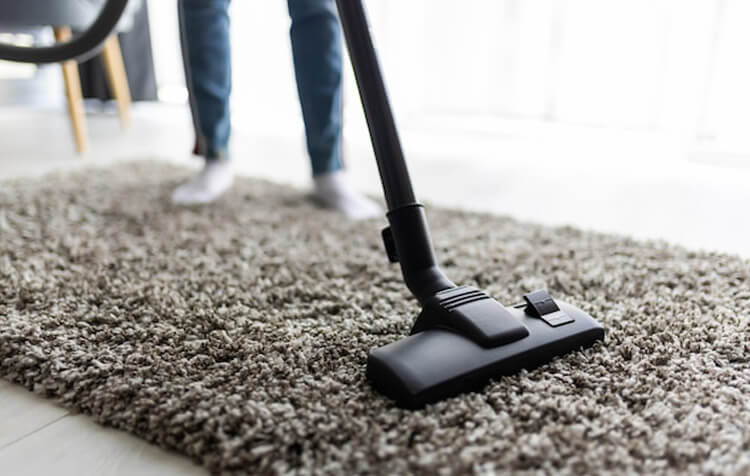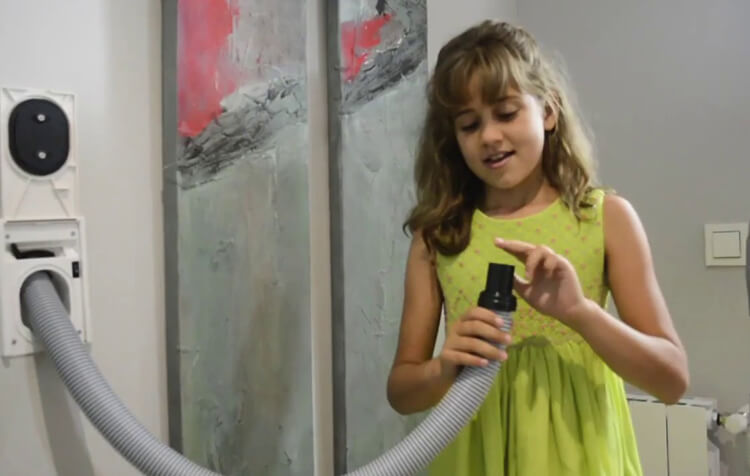
Can you justify the cost of installing a central vacuum system? In your opinion, what are the benefits and drawbacks of having a central vacuum system in your home? If you're familiar with regular vacuums, how does this one measure up?
These are the kind of questions you should be asking yourself before purchasing a central vacuum system for your house. In this article, we will discuss the benefits of installing a central vacuum system.
What is a Central Vacuum System?
Having a central vacuum system installed is a convenient way to clean the whole house at once. The huge power/ suction unit is often installed in a basement, garage, or utility room. Various tubes and electrical cables exit this unit and traverse the walls of a home to reach their respective destinations.
Depending on the system, each port may come with detachable hoses or a retractable hose for your convenience.
Along with the openings for the vacuum hoses, some systems also include holes in the baseboards. Like a dustpan with a built-in vacuum cleaner, you may use these slots to collect dust and dirt.
Due to the need to run tubes within the walls, these systems are best to fit during construction. However, even if your house has already been constructed, a central vacuum system may be installed.

The Benefits of a Central Vacuum System
Easy to Carry
Households with many levels may find it a pain to lug a heavy vacuum cleaner up and down the stairs. With a central vacuum system, the only thing you'll have to lift is a lightweight hose. If you choose one with hoses that retract at each port, you won't need to lug about any extra equipment.
You may use a hose to clean up thanks to the suction provided by these apertures. A vacuum with a hose that can reach at least 30 feet in length is ideal for cleaning adjacent areas like corridors and lobbies.
No Need for a Dustpan
Incorporating baseboard dust slots into your central vacuum system will eliminate the need for a dustpan. Rather than storing trash bags, sweep them into the opening! The central vacuum's collector only has to empty once every few months, which is a major benefit.
Lesser Noise
If the power unit for the central vacuum is present in a non-living space, such as a basement or garage, the system will be almost silent. Some full-size vacuums may go up to 70 or 80 decibels, making it hard to have a conversation while cleaning the floor.
When shopping for a central vacuum system, make sure to inquire about the decibel rating and the circumstances under which the noise level was measured.
Effectiveness of Central Vacuums
It is necessary to utilize bigger and more powerful motors in central vacuum systems since the machines themselves are much larger than regular vacuums. These robust motors offer much more suction force than a standard vacuum and can pick up rubbish of all sizes.
These numbers may be deceiving since a central vacuum requires much more suction to pull air and debris through the complex network of tubes and into the central unit. But regular vacuums just need to move air a short distance from the suction head to the dirt canister.
There is no change to the assumption that central vacuums are superior to standard vacuums.
Take Away
A central vacuum system is beneficial because it is easy to use. Moreover, it provides strong suction for a thorough cleaning, and it helps keep indoor air quality high. However, it may be expensive to set up and needs careful attention to be functional.
The bottom line is that a central vacuum system is a good investment if you can afford it. Moreover, if you want to increase the value of your house, and appreciate the convenience it provides, or enjoy both, it’s a good choice.

